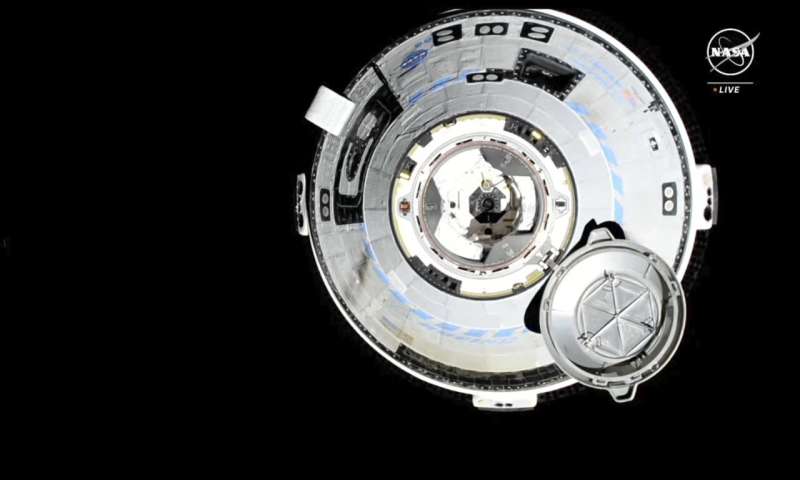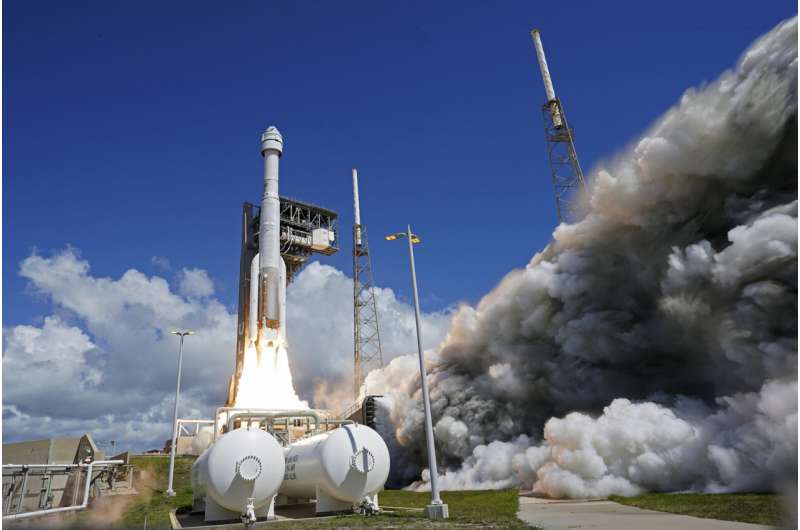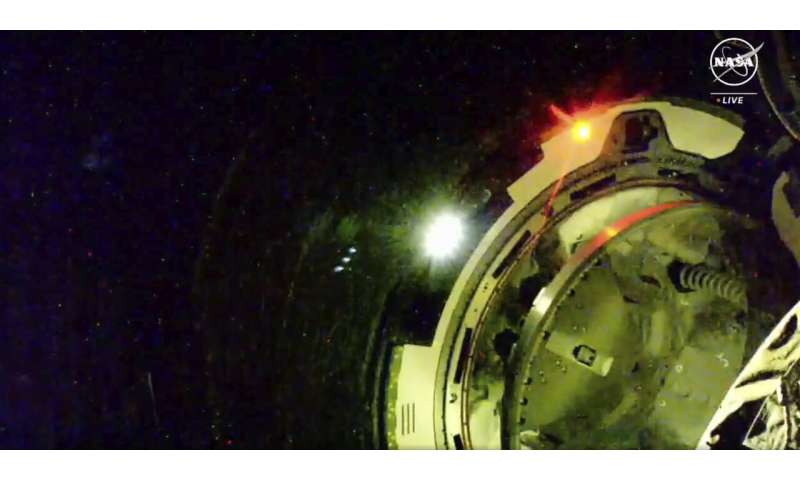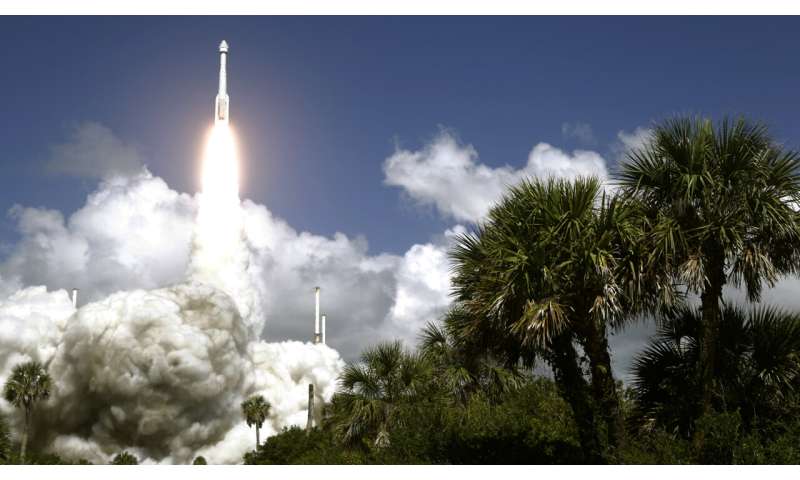
Boeing’s new capsule arrived at the International Space Station on Thursday, delayed by last-minute thruster trouble that almost derailed the docking for this first test flight with astronauts.
The 260-mile-high (420-kilometer-high) linkup over the Indian Ocean culminated more than a day of continuing drama for Boeing’s astronaut flight debut.
The Starliner capsule already had one small helium leak when it rocketed into orbit with two NASA astronauts Wednesday. Boeing and NASA managers were confident they could manage the propulsion system despite the problem and that more leaks were unlikely. But just hours into the flight, two more leaks cropped up.
Later, four of the capsule’s 28 thrusters went down. NASA test pilots Butch Wilmore and Suni Williams managed to restart three of them, providing enough safety margin to proceed. By then, Starliner had passed up the first docking opportunity and circled the world for an extra hour alongside the station before moving in.
It was not immediately known whether the thrusters problems were related to the earlier leaks.

Earlier in the day, before the thrusters malfunctioned, Boeing spokesman Jim May said the leaks posed no safety issues for the astronauts or the mission.
May said the capsule holds plenty of helium reserves to make up for what’s lost. The propulsion system will be disabled once the capsule is docked at the space station since the thrusters will not be needed then, he noted.
Helium is used to pressurize the fuel lines of Starliner’s thrusters, which are essential for maneuvering. Before liftoff, engineers devised a plan to work around any additional leaks in the system. A faulty rubber seal, no bigger than a shirt button, is believed responsible for the original leak.
-

Boeing Starliner spacecraft prepares to dock with the International Space Station for the first time on Thursday, June 6, 2024. Credit: NASA via AP
-

Boeing’s Starliner capsule, atop an Atlas V rocket, lifts off from launch pad at Space Launch Complex 41 Wednesday, June 5, 2024, in Cape Canaveral, Fla. NASA astronauts Butch Wilmore and Suni Williams are headed to the International Space Station. Credit: AP Photo/Chris O’Meara
After the space shuttles retired, NASA hired Boeing and SpaceX to ferry astronauts to and from the space station. SpaceX’s taxi service began in 2020. Boeing was supposed to start around the same time, but was held up for years by safety concerns and other troubles.
Boeing plans to keep Starliner at the space station for at least eight days before guiding it to a landing in the western U.S.
© 2024 The Associated Press. All rights reserved. This material may not be published, broadcast, rewritten or redistributed without permission.
Citation:
Boeing’s astronaut capsule arrives at the space station after thruster trouble (2024, June 6)
retrieved 7 June 2024
from https://phys.org/news/2024-06-boeing-astronaut-capsule-space-station.html
This document is subject to copyright. Apart from any fair dealing for the purpose of private study or research, no
part may be reproduced without the written permission. The content is provided for information purposes only.







